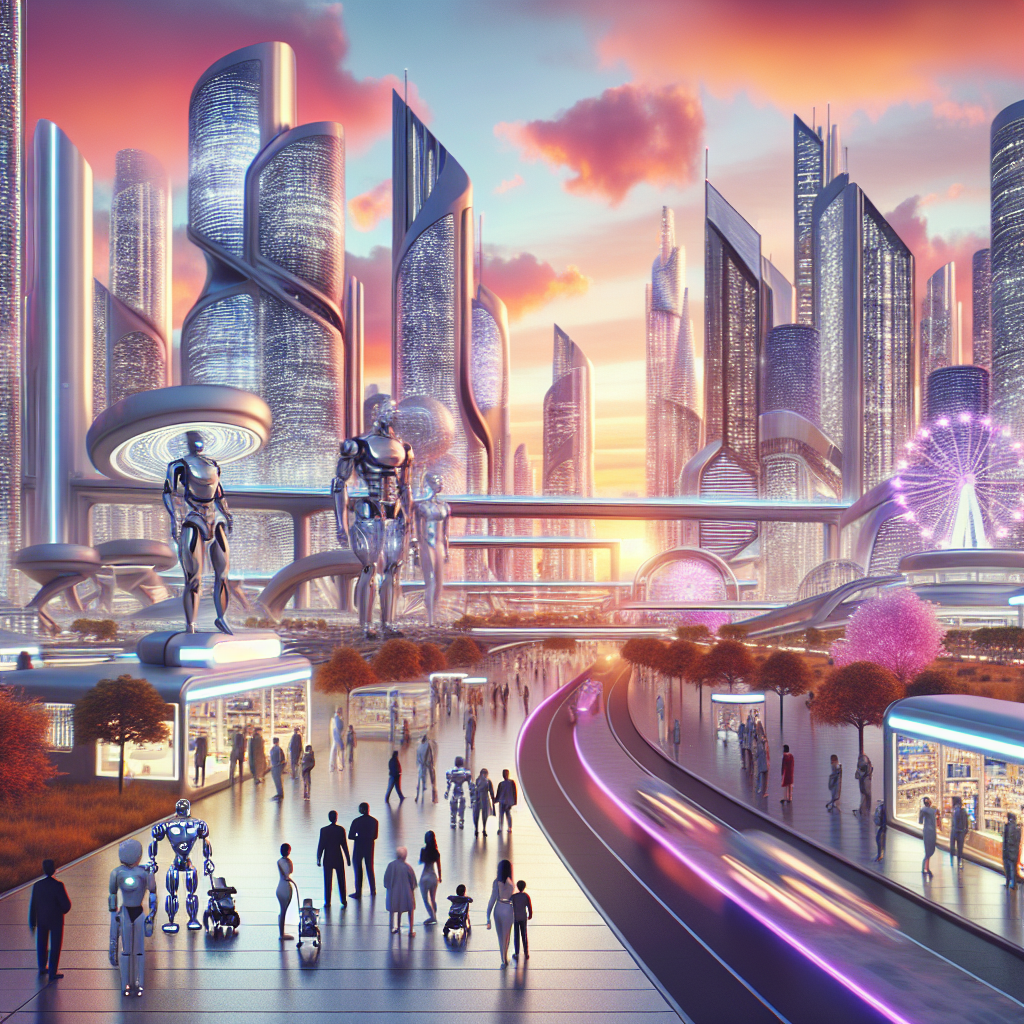The Tipping Point: Navigating the Uncharted Waters of Advanced AI
As we venture deeper into the year 2024, a palpable sense of anticipation mixed with a dash of trepidation envelops the realm of artificial intelligence (AI). In the span of a few short months, the evolution of AI has not merely progressed; it has catapulted, demonstrating advancements that are nothing short of astonishing. With entities like Sora leading the charge in video generation, the quality and consistency of their output have become a marvel to behold. Yet, as we teeter on the brink of even more groundbreaking discoveries, it's imperative to cast a critical eye on the trajectory of this technological juggernaut.
The digital landscape is evolving at an unprecedented pace, setting the stage for a future peppered with both innovations and challenges that could redefine society as we know it. Let's dive into the heart of the matter, exploring the multifaceted dimensions of this brave new world of AI.
Deep Fakes: The Double-Edged Sword
Imagine a world where seeing is no longer believing; where the line between reality and fabrication blurs to the point of non-existence. Deep fakes, AI-generated audio, and videos manipulated to mimic real people saying or doing things they never did, embody this dystopian vision. The evolution of deep fake technology has reached a point where distinguishing between genuine and counterfeit has become an ordeal for the untrained eye. The implications of this are staggering, particularly in sensitive domains like politics where a single deep fake could catalyze chaos. Though initially confined to the realms of entertainment, the potential for misuse in spreading misinformation, impersonating public figures, or even framing individuals in criminal activities paints a grim picture of the potential fallout.
AI's Expanding Horizon: Pixel and Beyond
On a lighter note, the advent of AI technologies like Pixel offers a glimpse into the boundless potential for creativity and convenience. Acting as a masterful photo editor, Pixel empowers users to conjure images out of thin air, extend landscapes, swap faces, and purify photos with a simplicity that's nothing short of magical. This democratization of creative tools underscores the positive facets of AI, enabling both novices and professionals to unleash their imaginative prowess without the steep learning curve traditionally associated with high-end software.
The Morality of Self-Driving Cars
The debate surrounding self-driving cars is emblematic of the broader ethical quagmires posed by AI. The tragic incident in Tempe, Arizona, where a pedestrian lost their life to an autonomous Uber car, starkly highlights the limitations and dangers of entrusting machines with life-and-death decisions. While the allure of a driverless future is undeniable, the absence of human intuition and the potential for hacking present insurmountable challenges that must be addressed. The notion of surrendering control to lines of code, devoid of the capacity for empathy or moral judgment, is a stark reminder of the need for a balanced approach in integrating AI into the fabric of daily life.
The Rise of AI Influencers: Beyond the Surface
The digital realm has witnessed the emergence of AI influencers, virtual personas that challenge the very notion of celebrity. With their seamless blend into social media, these digital creations offer brands unparalleled control over their messaging, devoid of the unpredictability associated with human counterparts. However, this phenomenon raises profound questions about authenticity, privacy, and the ethical boundaries of digital identity. As the technology evolves, the potential for misuse in creating convincing yet entirely fictitious personas poses a significant threat to the integrity of online spaces.
The Specter of AGI: Treading Carefully into the Unknown
Perhaps the most contentious and speculative aspect of AI's future is the concept of Artificial General Intelligence (AGI). The possibility of creating a machine with cognitive abilities matching or surpassing human intelligence stirs a mix of awe and fear. The ethical dilemmas, potential for unintended consequences, and the profound implications for humanity's place in the universe render AGI a topic of intense debate. With advancements hinting at the dawn of AGI, the conversation has shifted from theoretical to imminent, necessitating a cautious and deliberate approach to this final frontier.
In conclusion, as we navigate the uncharted waters of advanced AI, the journey promises to be as exhilarating as it is unnerving. The marvels of technology stand poised to reshape the world in ways previously confined to the realms of science fiction. Yet, with great power comes great responsibility. Ensuring that the evolution of AI remains aligned with humanity's best interests will require vigilance, ethical considerations, and an unwavering commitment to the greater good. In this pivotal moment, the actions we take today will echo through the annals of history, crafting a legacy that future generations will inherit. The choice is ours, and the time to act is now.
For further reading on the implications and future of AI, consider exploring the following resources:
Related News
- Navigating the Labyrinth: The Rise of AI and Its Implications
- Navigating the Complex World of AI: A Dive into Recent Developments and Controversies
- Navigating the AI Tsunami: A Deep Dive into the Currents Shaping Our Digital Future
- The Evolution and Potential Perils of Artificial Intelligence
- The Evolution of AI: A Journey from Prediction to Reality
